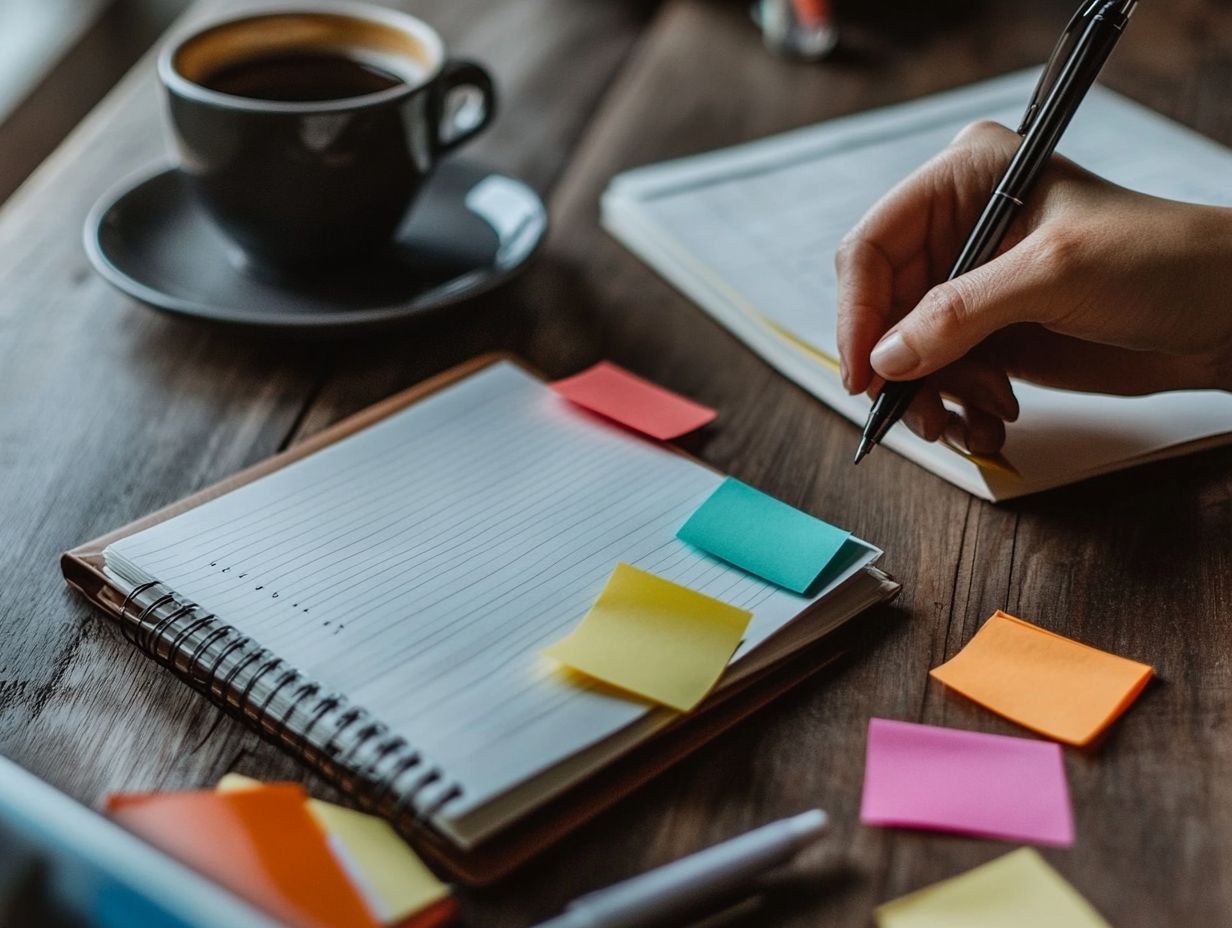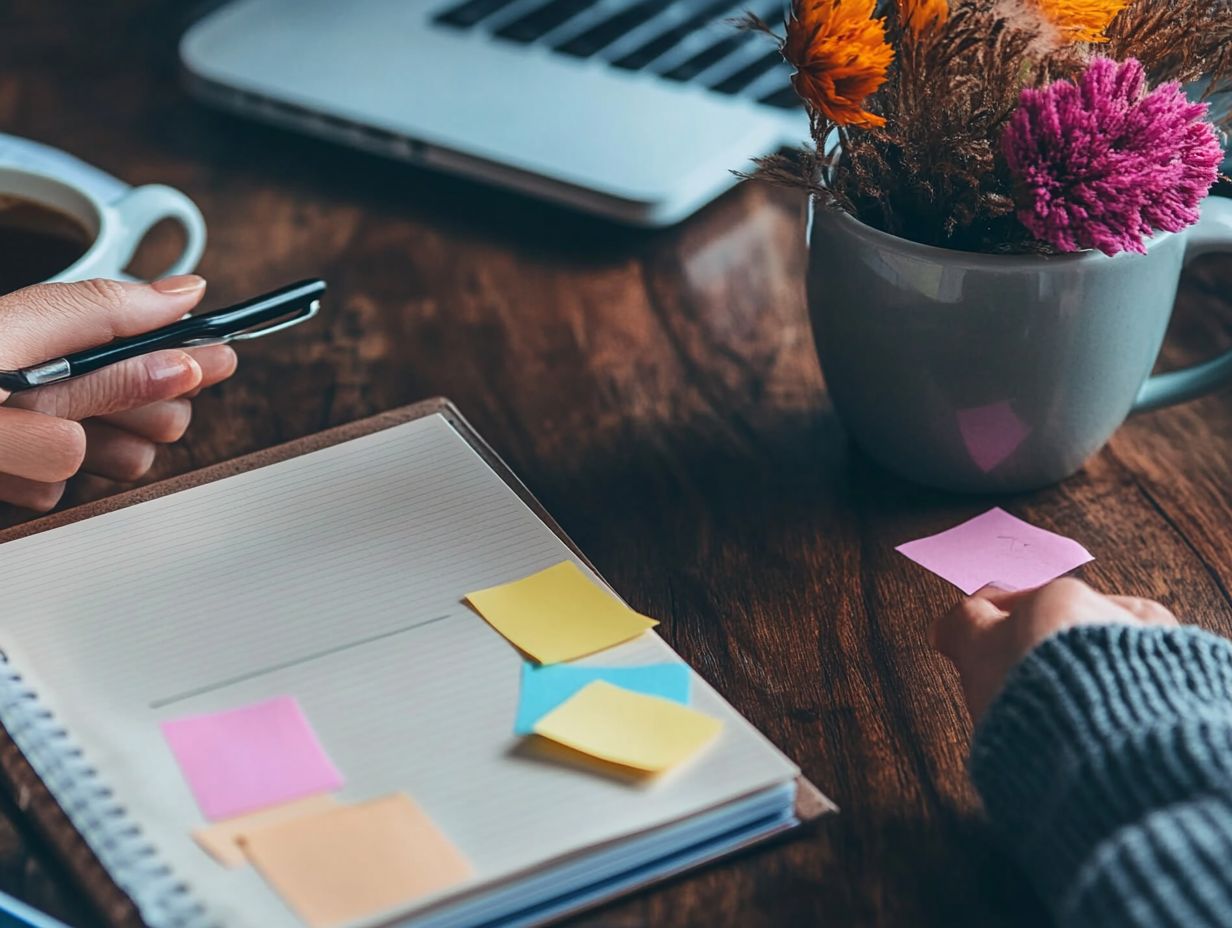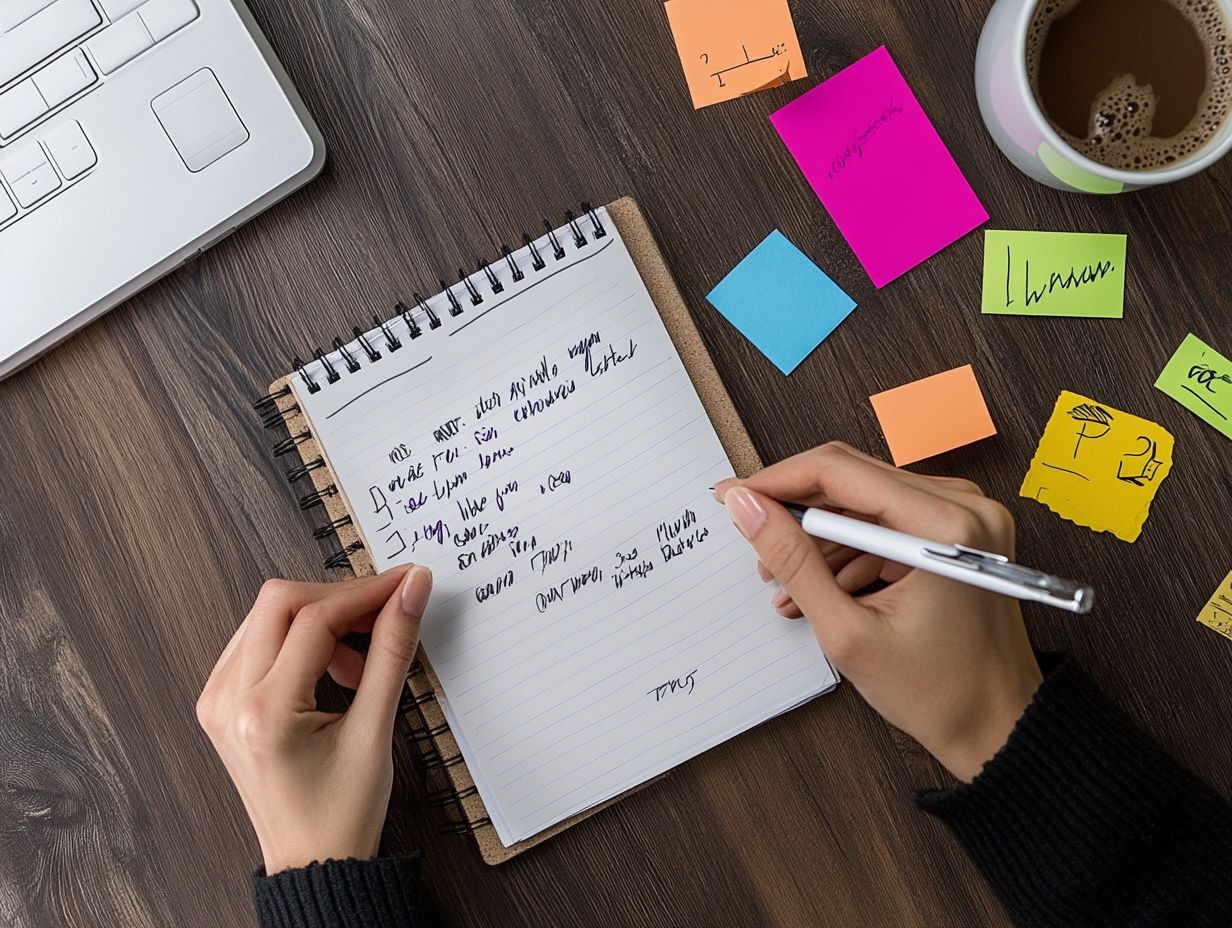How to Spot and Correct Bad Habits
Bad habits can creep into your life, often without you even noticing. They can impact both your mental and physical health, preventing you from reaching your true potential.
This article delves into what defines a bad habit, how to pinpoint the ones that may be hindering you, and the negative effects they can impose.
It also outlines effective strategies for breaking these habits, fostering positive ones in their place, and sustaining those new behaviors for lasting transformation.
Join us on this exciting journey to build better habits and transform into a healthier you!
Contents
- Key Takeaways:
- Understanding Bad Habits
- Identifying Your Bad Habits
- The Impact of Bad Habits
- Negative Effects on Mental and Physical Health
- Breaking Bad Habits
- Strategies for Overcoming Habits
- Cultivating Good Habits
- Tips for Building Positive Habits
- Maintaining Good Habits
- Frequently Asked Questions
- 1. How can I identify my bad habits?
- 2. What are some common examples of bad habits?
- 3. How do I break a bad habit?
- 4. Can bad habits be corrected?
- 5. How do bad habits affect our lives?
- 6. Are there any resources or techniques to help spot and correct bad habits, including environmental triggers and bad habit triggers?
Key Takeaways:

- Reflect on your actions to spot bad habits.
- Use clear goals to break those habits.
- Stay consistent to build good habits for a healthier life.
Understanding Bad Habits
Knowing what bad habits are is key for anyone aiming to elevate their emotional well-being and cultivate lasting self-control. These bad habits often arise from a quest for comfort think indulging in sugary drinks or putting off tasks and can significantly hinder your journey toward achieving long-term goals.
Typically, these habits are reinforced by things around you, leading to unhealthy routines that negatively impact both your mental and physical health. Grasping the intricacies of habit formation, including the challenges of resisting change and regulating emotions, is vital for breaking these cycles and nurturing positive habits in your life.
Definition and Types of Habits
Habits are those automatic behaviors that form through repetition, and you can categorize them into positive habits that propel your personal growth and unhealthy habits that hold you back.
The process of habit formation typically starts with a cue, which triggers a response that eventually becomes routine through consistent practice. Over time, these ingrained behaviors can either enhance your well-being or detract from it. For example, embracing positive habits like daily exercise and mindful meditation can significantly boost your mental and physical health. On the flip side, unhealthy habits think excessive screen time or relying on junk food can lead to cycles of negativity.
By distinguishing between these types of habits, you give yourself the power to shift towards more productive coping strategies. Engaging in creative outlets or employing self-soothing techniques, like taking deep breaths or writing in a journal, can foster a healthier lifestyle overall.
Identifying Your Bad Habits
Identifying your bad habits demands a thoughtful process of self-reflection and keen observation. These habits often lurk in the subconscious, cleverly disguised by ambivalence and negative self-talk.
By engaging in this introspective journey, you can uncover the patterns that hold you back and pave the way for meaningful change.
Self-Reflection and Observation
Self-reflection and observation are essential tools for you in identifying those pesky bad habits. These practices encourage mindful awareness of your behaviors and emotional responses.
By dedicating time to self-reflection, you can start to recognize the patterns that lead to detrimental habits. Techniques like journaling can be incredibly effective, providing an outlet for deeper insights into your thoughts and feelings over time. Mindfulness practices, such as meditation or breathwork, cultivate present-moment awareness, making it easier for you to spot triggers linked to negative behavior.
Incorporating emotional regulation strategies will also help you manage those intense feelings that often drive these habits. Together, these approaches empower you to break free from unhealthy patterns and nurture a more balanced lifestyle.
The Impact of Bad Habits

Bad habits can seriously affect your life in ways you might not realize! They can significantly undermine both your mental and physical health. These detrimental patterns can lead to decreased self-esteem and hinder your potential for improved longevity.
It s essential to recognize the profound effects these habits can have on your overall well-being.
Start your journey today recognize your bad habits and take the first step toward change!
Negative Effects on Mental and Physical Health
Bad habits can significantly impact your mental and physical health. They can lead to issues such as addiction, emotional distress, and an overall decline in well-being.
Take excessive alcohol consumption, for instance. It’s not just linked to liver diseases; it can also worsen anxiety and depression, as numerous studies in the Journal of Abnormal Psychology reveal.
Similarly, when you find yourself compulsively using digital devices, it can disrupt your sleep patterns. This disruption can result in sleep deprivation, adversely affecting your cognitive function and mood regulation.
Experts in behavioral health point out that these habits create a vicious cycle. As you grapple with emotional turbulence, you might turn to harmful coping mechanisms like substance abuse or overeating. These behaviors only serve to weaken your mental resilience.
Recognizing these patterns is crucial for tackling the root causes. This promotes healthier lifestyles and ultimately enhances your emotional stability and physical health.
Breaking Bad Habits
Breaking bad habits can be a challenging journey, but it s certainly within your reach. This process demands effective strategies and a steadfast commitment to self-compassion.
Incorporating methods such as a type of therapy that helps change negative thought patterns can help you tackle any underlying issues, guiding you toward lasting change.
Strategies for Overcoming Habits
Effective strategies for overcoming bad habits include:
- Crafting a structured quitting plan.
- Setting incremental goals.
- Weaving in positive reinforcement.
- Engaging in peer support.
By breaking the process into manageable steps, you can replace those unwanted behaviors with healthier alternatives. This makes the transition feel much less overwhelming.
Setting clear milestones allows you to celebrate small victories along the way. This enhances your motivation to continue. Positive reinforcement is key here; rewarding yourself for your achievements encourages sustained effort.
Involving friends or family in this endeavor creates a supportive environment that fosters accountability and encouragement. This significantly boosts your resilience against temptations.
With these combined strategies, you ll find yourself well-equipped to make lasting changes.
Cultivating Good Habits
Cultivating good habits is crucial for your personal growth. You can achieve this elegantly through:
- Mindfulness training (being aware of your thoughts and feelings in the present moment).
- Effective habit replacement strategies.
- Making subtle yet impactful changes in your daily routines.
Tips for Building Positive Habits

To effectively build positive habits, consider implementing motivation strategies. Cultivate a supportive environment with friends and establish a reward system to reinforce your progress.
Harnessing the power of small, incremental changes can truly transform your experience. Utilize techniques such as setting specific goals and tracking your progress to maintain focus.
Engaging with friends who share similar aspirations fosters encouragement and ensures accountability. This supportive network can provide valuable insights and collectively celebrate your achievements.
Developing a tailored reward system, like treating yourself to something special after reaching milestones, reinforces your journey and keeps the momentum alive.
By concentrating on these elements, you can cultivate sustainable habits that lead to long-lasting positive changes.
Maintaining Good Habits
Maintaining good habits demands a meticulously crafted maintenance schedule, along with consistent mindfulness practices. You must implement effective strategies to keep yourself aligned and prevent any slips back into old patterns.
Start your journey to better habits now!
How to Stay on Track and Avoid Relapse
Staying on track is essential! Use effective coping strategies, better control of your emotions, and a commitment to mindfulness in your daily life.
Establishing a routine that incorporates practices is crucial. These practices enhance your self-awareness and emotional stability. Techniques like journaling can become a powerful ally, encouraging you to reflect on your feelings and helping you recognize events or situations that lead to unwanted behaviors that might lead to impulsive behaviors.
Mindfulness meditation helps you feel more present, enabling you to manage stress and anxiety often the sneaky precursors to relapse. Cultivating a support network is vital; surrounding yourself with like-minded individuals provides the encouragement and accountability you need.
This empowering environment can significantly bolster your resilience and commitment to making healthier choices.
Frequently Asked Questions
1. How can I identify my bad habits?
One way to spot your bad habits is to pay attention to your daily routine and actions. Notice if there are any behaviors that are harmful or hindering your progress. You can also ask for feedback from trusted friends or family members.
2. What are some common examples of bad habits?

Some examples of bad habits include procrastination, excessive screen time, unhealthy eating, nail-biting, negative self-talk, and overspending. These habits can negatively impact our physical and mental well-being.
3. How do I break a bad habit?
The first step to breaking a bad habit is to acknowledge it and the negative effects it has on your life. Then, come up with a plan to replace the bad habit with a positive one. It may also be helpful to seek support from a friend or a professional counselor.
4. Can bad habits be corrected?
Yes, bad habits can be corrected with determination and consistency. It may take time and effort, but it is possible to replace a bad habit with a healthier one. Remember to be patient with yourself and celebrate small victories along the way.
5. How do bad habits affect our lives?
Bad habits can have a significant impact on our lives. They can lead to stress, low self-esteem, poor health, strained relationships, and hinder our personal and professional growth. By identifying and correcting them, we can improve our overall well-being.
6. Are there any resources or techniques to help spot and correct bad habits, including environmental triggers and bad habit triggers?
Yes, there are plenty of resources and techniques that can help in spotting and correcting bad habits. Some examples include keeping a habit tracker, creating a rewards system, practicing mindfulness and self-reflection, and seeking support from a therapist or a support group.
Start identifying your bad habits today and take the first step towards a healthier life!






